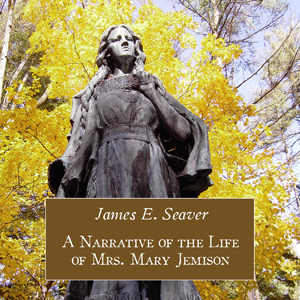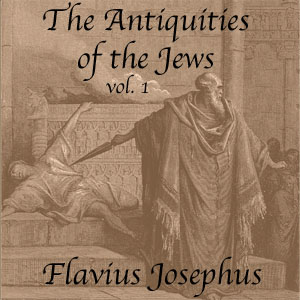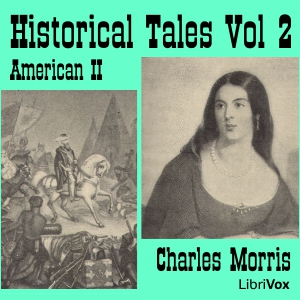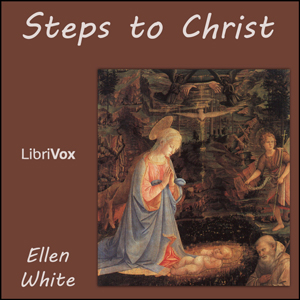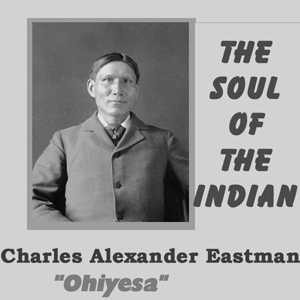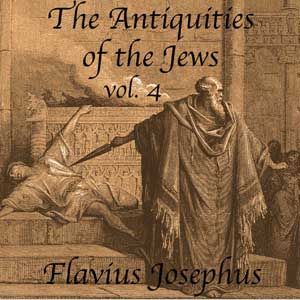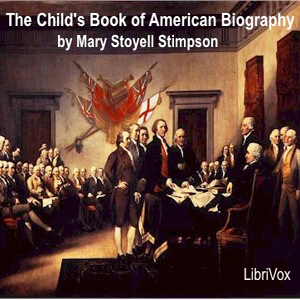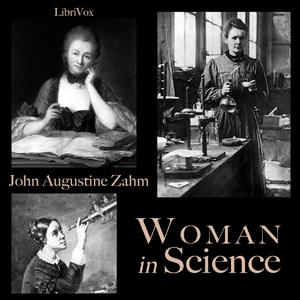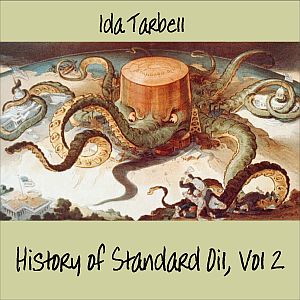Louise Michel (1830-1905) était une anarchiste française très active dans la Commune de Paris de 1871. Son livre "La Commune" écrit en 1898 raconte ce qui s'y passa durant cette période. (Résumé par Enko) Louise Michel (1830-1905) was a french anarchist very active during the Paris Commune of 1871. Her book "La Commune" written in 1898 describes what happened in that event. (Summary by Enko)
37 episodes

"Second, when telling such lies as may seem necessary to your international standing, do not tell the lies to the people who know the truth. Do not tell the Eskimos that snow is bright green; nor tell the negroes in Africa that the sun never shines in that Dark Continent. Rather tell the Eskimos that the sun never shines in Africa; and then, turning to the tropical Africans, see if they will believe that snow is green. Similarly, the course indicated for you is to slander the Russians to the English and the English to the Russians; and there are hundreds of good old reliable slanders which can still be used against both of them. There are probably still Russians who believe that every English gentleman puts a rope round his wife's neck and sells her in Smithfield. There are certainly still Englishmen who believe that every Russian gentleman takes a rope to his wife's back and whips her every day. But these stories, picturesque and useful as they are, have a limit to their use like everything else; and the limit consists in the fact that they are not true, and that there necessarily exists a group of persons who know they are not true. It is so with matters of fact about which you asseverate so positively to us, as if they were matters of opinion." (Gilbert Keith Chesterton)
10 episodes
"The expedition of Messrs. Lewis and Clarke, for exploring the river Missouri, and the best communication from that to the Pacific Ocean, has had all the success which could be expected. They have traced the Missouri nearly to its source; descended the Columbia to the Pacific Ocean, ascertained with accuracy the Geography, of that interesting communication across the continent; learned the character of the country, its commerce and inhabitants; and it is but justice to say that Messrs. Lewis and Clarke, and their brave companions, have, by this arduous service, deserved well of their country." This volume is the 1840 edition with woodcut images and an Indian vocabulary. They may be viewed by clicking on the text URL. (Summary in quotes by President Thomas Jefferson)
28 episodes
Volume I of a series containing anecdotes and stories, some well-known, others less so, of particular countries. This first volume comprises the discovery, colonization, founding, and early years of the United States of America, describing history for children and young adults in an exiting and novel manner. (Summary by Kalynda)
28 episodes

Robert Sterling Yard was an American writer, journalist, and wilderness activist. Born in Haverstraw, New York, Yard graduated from Princeton University and spent the first twenty years of his career in the editing and publishing business. In 1915, he was recruited by his friend Stephen Mather to help publicize the need for an independent national park agency. Their numerous publications were part of a movement that resulted in legislative support for a National Park Service (NPS) in 1916. Yard worked to promote the national parks as well as educate Americans about their use. Creating high standards based on aesthetic ideals for park selection, he also opposed commercialism and industrialization of what he called "America's masterpieces". In 1935, he became one of the eight founding members of The Wilderness Society and acted as its first president from 1937 until his death eight years later. Yard is now considered an important figure in the modern wilderness movement.In the preface to this book, published in 1919, he writes, "In offering the American public a carefully studied outline of its national park system, I have two principal objects. The one is to describe and differentiate the national parks in a manner which will enable the reader to appreciate their importance, scope, meaning, beauty, manifold uses and enormous value to individual and nation. The other is to use these parks, in which Nature is writing in large plain lines the story of America's making, as examples illustrating the several kinds of scenery, and what each kind means in terms of world building; in other words, to translate the practical findings of science into unscientific phrase for the reader's increased profit and pleasure, not only in his national parks but in all other scenic places great and small." (summary from wikipedia)
30 episodes
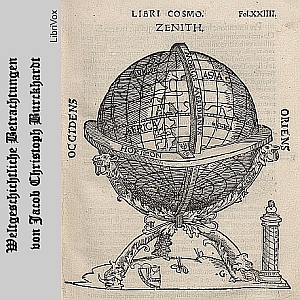
Weltgeschichtliche Betrachtungen von Jacob Christoph Burckhardt (1818 - 1897), herausgegeben von Jacob Oeri (1844-1908). 1905 veröffentlicht.
Des Weiteren wurden aus seinem Nachlass die Griechische Kulturgeschichte und die vielgelesenen Weltgeschichtlichen Betrachtungen veröffentlicht. Burckhardt hatte nie vor, sein Kolleg Über Studium der Geschichte, das er von 1868 bis 1872 dreimal abhielt, zu publizieren. Noch auf dem Sterbebett gab er seinem Neffen Jacob Oeri (1844-1908) den Auftrag, alle handschriftlichen Hinterlassenschaften einstampfen zu lassen, aber die Erlaubnis zur Einsichtnahme konnte ihm Oeri doch noch abringen. Dass diese Einsicht etliche Jahre dauern und mit einer Veröffentlichung enden sollte, war sicher nicht Burckhardts Absicht. Wie bei mehrfach gehaltenen Vorlesungen nicht ungewöhnlich, liegen die Skripte in mehreren Fassungen vor, durchsetzt mit Einschüben und Aktualisierungen. Das erhaltene handschriftliche Material - die Mitschriften von Studenten nicht mitgerechnet - ist etwa doppelt so umfangreich wie der Text, den Oeri dann für die Buchausgabe von 1905 herausgab. Die kühnste Neuerung Oeris war wohl die Veränderung des Titels zu Weltgeschichtliche Betrachtungen.
(Zusammenfassung von Wikipedia)
31 episodes
1. Vorrede zu der Geschichte des Maltheserordens nach Vertot von M. N. bearbeitet. (1792)
2. Herzog von Alba bei einem Frühstück auf dem Schlosse zu Rudolstadt, im Jahr 1547. (1788)
3. Der Spaziergang unter den Linden (1782)
4. Vorrede zu dem ersten Theile der merkwürdigsten Rechtsfälle nach Pitaval. (1792)
5. Eine großmütige Handlung aus der neuesten Geschichte (1782)
6. Ueber Egmont, Trauerspiel von Goethe (1788)
7. Spiel des Schicksals (1789)
9 episodes
Mrs. Mary Jemison was taken by the Indians, in the year 1755, when only about twelve years of age, and has continued to reside amongst them to the present time. Containing an account of the murder of her father and his family; her sufferings; her marriage to two Indians; her troubles with her children; barbarities of the Indians in the French and Revolutionary Wars; the life of her last husband, and many historical facts never before published. (Summary by James Seaver)
20 episodes
Antiquities of the Jews was a work published by the important Jewish historian Flavius Josephus about the year 93 or 94. It is a history of the Jewish people, written in Greek for Josephus' gentile patrons. Beginning with the creation of Adam and Eve, it follows the events of the historical books of the Hebrew Bible, but sometimes omits or adds information. (Summary by Wikipedia)
Volume 1 contains Books 1-5 and ends with the dedication of Samuel and death of Eli the priest.
37 episodes
Christopher Carson, or as he was familiarly called, Kit Carson, was a man whose real worth was understood only by those with whom he was associated or who closely studied his character. He was more than hunter, trapper, guide, Indian agent and Colonel in the United States Army....His lot was cast on the extreme western frontier, where, when but a youth, he earned the respect of the tough and frequently lawless men with whom he came in contact. Integrity, bravery, loyalty to friends, marvelous quickness in making right decisions, in crisis of danger, consummate knowledge of woodcraft, a leadership as skilful as it was daring; all these were distinguishing traits in the composition of Carson and were the foundations of the broader fame which he acquired as the friend and invaluable counselor of Fremont, the Pathfinder, in his expeditions across the Rocky Mountains. (Summary from the Introduction)
39 episodes
An account given of the lives of five great naturalists (Hippocrates, Aristotle, Galen, Vesalius and Harvey) will not be found devoid of interest. The work of each one of them marked a definite advance in the science of Biology.
There is often among students of anatomy and physiology a tendency to imagine that the facts with which they are now being made familiar have all been established by recent observation and experiment. But even the slight knowledge of the history of Biology, which may be obtained from a perusal of this little book, will show that, so far from such being the case, this branch of science is of venerable antiquity. And, further, if in the place of this misconception a desire is aroused in the reader for a fuller acquaintance with the writings of the early anatomists the chief aim of the author will have been fulfilled. (Summary is the Preface to the book, adapted by Neeru Iyer)
5 episodes
"While the world was young, nations could be founded peaceably. There was plenty of unoccupied country, and when two neighbouring patriarchs found their flocks were becoming too numerous for the pasture, one said to the other: "Let there be no quarrel, I pray, between thee and me; the whole earth is between us, and the land is watered as the garden of Paradise. If thou wilt go to the east, I will go to the west; or if thou wilt go to the west, I will go to the east." So they parted in peace.
(Excerpt)
37 episodes
A brief history of The Great War (World War I) designed for students in grades seven and eight. Special emphasis on European history leading up to the war, reasons and events leading to America's eventual entering the war, and possible ramifications of the war for future generations.
(Summary by James Christopher)
15 episodes
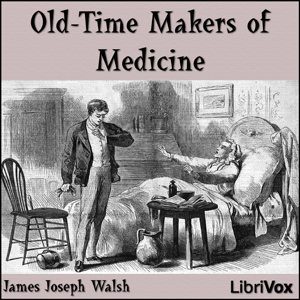
Dr. Walsh's Old-Time Makers of Medicine chronicles the history and development of modern medicine from ancient times up to the discovery of America. Throughout this historical guide, Dr. Walsh shows numerous examples of practices thought to be entirely modern that were clearly anticipated hundreds or thousands of years ago. Ancient healers sought to use the body's natural healing ability, rather than rely exclusively on external cures. Physicians even in ancient times relied on what is now recognized as the placebo effect.Dr. Walsh also addresses training and certification in medicine. Medieval universities anticipate our modern medical textbooks with consolidated records of all research and independent investigations, to provide uniform training for students. Likewise, the reader will find that the ancients reacted to unsuccessful treatment in similar degrees to what might now be called medical malpractice suits.The book is organized chronologically, beginning with the fall of the Roman Empire and growth of the early Christian Church. From there, Dr. Walsh details the development of medical knowledge and practice in Arabia, to Medieval and Renaissance Europe. The reader will also discover how modern cultures based much of their medical knowledge on ancient Greek teachings. The chapters on Arabian Physicians and Medieval Universities also discuss knowledge exchanged between Arabic and European cultures. Dr. Walsh exposes several misconceptions and misinterpretations of history, especially restrictions of medical research stemming from religious prohibitions. (Summary by LivelyHive)
29 episodes

Parkman has been hailed as one of America's first great historians and as a master of narrative history. Numerous translations have spread the books around the world. The American writer and literary critic Edmund Wilson (1895-1972) in his book "O Canada" (1965), described Parkman’s France and England in North America in these terms: "The clarity, the momentum and the color of the first volumes of Parkman’s narrative are among the most brilliant achievements of the writing of history as an art."Parkman's biases, particularly his attitudes about nationality, race, and especially Native Americans, has generated criticism. The Canadian historian W. J. Eccles harshly criticized what he perceived as Parkman's bias against France and Roman Catholic policies, as well as what he considered Parkman's misuse of French language sources. However, Parkman's most severe detractor was the American historian Francis Jennings, an outspoken and controversial critic of the European colonization of North America, who went so far as to characterize Parkman's work as "fiction" and Parkman himself as a "liar".Unlike Jennings and Eccles, many modern historians have found much to praise in Parkman's work even while recognizing his limitations. Calling Jennings' critique "vitriolic and unfair," the historian Robert S. Allen has said that Parkman's history of France and England in North America "remains a rich mixture of history and literature which few contemporary scholars can hope to emulate". The historian Michael N. McConnell, while acknowledging the historical errors and racial prejudice in Parkman's book The Conspiracy of Pontiac, has said: "...it would be easy to dismiss Pontiac as a curious perhaps embarrassing artifact of another time and place. Yet Parkman's work represents a pioneering effort; in several ways he anticipated the kind of frontier history now taken for granted.... Parkman's masterful and evocative use of language remains his most enduring and instructive legacy."(Summary adapted from Wikipedia by Karen Merline)
Part 1: Pioneers of France in the New World
Part 2: The Jesuits in North America in the 17th Century
Part 4: The Old Régime in Canada
Part 5: Count Frontenac and New France under Louis XIV
Part 6: Montcalm and Wolfe
Part 7: A Half Century of Conflict
40 episodes
This book is intended to give the reader an account of the origin and history of Hallowe'en, how it absorbed some customs belonging to other days in the year,—such as May Day, Midsummer, and Christmas. The context is illustrated by selections from ancient and modern poetry and prose, related to Hallowe'en ideas. (Summary by Ruth Kelley, from the Preface).
16 episodes
From the first chapter: "History is a story, a story of things that happened to real live people in our England years ago; and the things that are happening here and now, and that are put in the newspapers, will be history for little children one of these days. And the people you read about in history were real live people, who were good and bad, and glad and sorry, just as people are now-a-days."E. Nesbit writes about some of the people behind the names, dates and battles of English History in this lovely book for older children. The original book contains some beautiful illustrations and you can see those by clicking the 'Gutenberg' link below. Summary by Cori Samuel.
6 episodes
An introduction to Arizona from approximately a century ago. (Summary by BellonaTimes)
14 episodes
Volume II of a series containing anecdotes and stories, some well-known, others less so, of particular countries. This second volume supplements the first with additional stories of the discovery, colonization, founding, and early years of the United States of America, describing history for children and young adults in an exciting and novel manner. (Summary by Kalynda)
34 episodes
Ellen Gould White (1827 - 1915) was a prolific Christian writer, authoring 40 books in her lifetime. She was active in the Millerite movement, and was one of the principle founders of the Seventh Day Adventist Church.
Steps to Christ, first published in 1892, is her most popular book. It has been translated into more than 70 languages. The theme of the book is how to come to know Christ better. (Summary by Donald Hines)
13 episodes
“It is, for that matter, self-evident that if one community decides in one fashion, another, also sovereign, in the opposite fashion, both cannot be right. Reasoning men have also protested, and justly, against the conception that what a majority in numbers, or even (what is more compelling still) a unanimity of decision in a community may order, may not only be wrong but may be something which that community has no authority to order since, though it possesses a civil and temporal authority, it acts against that ultimate authority which is its own consciousness of right. Men may and do justly protest against the doctrine that a community is incapable of doing deliberate evil; it is as capable of such an action as is an individual. But men nowhere do or can deny that the community acting as it thinks right is ultimately sovereign: there is no alternative to so plain a truth.”
- Hilaire Belloc
36 episodes

In the book's preface, the author writes: "Let anyone stop to consider how he individually would be affected if all electrical service were suddenly to cease, and he cannot fail to appreciate the claims of electricity to attentive study."In these days when we take for granted all kinds of technology - communications, entertainment, medical, military, industrial and domestic - it is interesting to learn what progress had been made in the fields of electricity and technology by the beginning of the 20th century.Including the dawn of hydro-electric power, the x-ray, the phonograph, the telephone and the wireless telegraph, this book explains the pioneering work of the men who made our modern world possible, and sets us wondering what the next century may bring - providing that we do not manage to destroy our planet in the meantime. The Gutenberg text of the 1915 edition (as recorded) does not have the benefit of the book's many diagrams. Also available, however, is an online book scan of the 1912 edition which includes the illustrations and coincides largely with the text recorded. (Summary by Ruth Golding)
13 episodes

One great universal law runs through the realm of nature. Our Saviour gave it in a sentence: 'First the blade, then the ear, after that the full corn in the ear.' It is with the desire to show that the same law rules in another of God's creations—The Bible—that this little volume has been prepared. The Bible has as literally 'grown' as has an oak tree; and probably there is no more likeness between the Bible as we know it to-day and its earliest beginning, than we find between the mighty tree, and the acorn from which it sprang. The subject is so vast that we have not attempted anything beyond the briefest outline. Our purpose has been merely to give some idea of the origin of the Bible books, up to the measure of our present light upon the subject, and also to show the purpose for which they were written. But if our readers, by seeing something of the wonder and glory of the Holy Scriptures, are able to catch a glimpse of the Creator's mind behind the whole, our work will not have been in vain. (Foreword, by Mildred Duff)
13 episodes
Antiquities of the Jews was a work published by the important Jewish historian Flavius Josephus about the year 93 or 94. Antiquities of the Jews is a history of the Jewish people, written in Greek for Josephus' gentile patrons. Beginning with the creation of Adam and Eve, it follows the events of the historical books of the Hebrew Bible, but sometimes omits or adds information. (Summary by Wikipedia)
Volume 2 contains Books 6-10; it begins right after the death of Eli the priest and the capture of the Ark and ends with the prophecies of Daniel in Persia.
39 episodes
Volume III of a series containing anecdotes and stories, some well-known, others less so, of particular countries. This third volume covers the discovery, colonization, founding, and early years of the countries of South America, describing history for children and young adults in an exciting and novel manner. (Summary by Kalynda)
32 episodes
The Education of Henry Adams records the struggle of Bostonian Henry Adams (1838-1918), in early old age, to come to terms with the dawning 20th century, so different from the world of his youth. It is also a sharp critique of 19th century educational theory and practice. In 1907, Adams began privately circulating copies of a limited edition printed at his own expense. Commercial publication had to await its author's 1918 death, whereupon it won the 1919 Pulitzer Prize. (Introduction by Wikipedia)
36 episodes
18 works -- two non-fic articles & one short fiction or poetry each -- from issues March, April, May, June, July, & August 1906 of The Scrap Book, Volume 1, edited by Frank Munsey. As he states in the editorial of the April 1906 issue (Vol 1, Iss 2) this was a sort of supplement to the editor's popular monthly, Munsey's Magazine http://en.wikipedia.org/wiki/Munsey's_Magazine. The Scrap Book is very like an American version of Punch with many short, often humorous articles interspersed with at least one short story, some poetry, and several longer non-fic pieces. The Scrap Book ran up to 1912.(Summary by BellonaTimes)
18 episodes
The Lives of the Queens of England is a multi-volumed work attributed to Agnes Strickland, though it was mostly researched and written by her sister Elisabeth. These volumes give biographies of the queens of England from the Norman Conquest in 1066. Although by today's standards, it is not seen as a very scholarly work, the Stricklands used many sources that had not been used before.Volume one includes the biographies of Matilda of Flanders, Matilda of Scotland, Adelicia of Louvaine, Matilda of Boulogne and Eleanora of Aquitaine.(Introduction by Ann Boulais)
18 episodes
A look at some of the famous women in European history. Includes biographies on Cleopatra; Isabella of Castile; Joan of Arc; Maria Theresa; Josephine; Elizabeth of England; Mary of Scotland; Catherine of Russia; Marie Antoinette; and Madame Roland.
Mr. Jenkins, whose name remains on the title-page of this volume, was prevented from finishing the work for a long time by sickness, and finally by death. The first chapter is from his pen, and the rest has been written according to his instructions by one whom he selected, and who has had access to works rare in this country, such as Monstrelet's Chronicles, Tooke's Life of Catherine II., Madame Roland's Appeal, etc. (Summary by TriciaG & Publisher's Preface)
41 episodes
The world, if we choose to see it so, is a complicated picture of people dressing and undressing. The history of the world is composed of the chat of a little band of tailors seated cross-legged on their boards; they gossip across the centuries, feeling, as they should, very busy and important. As you will see, I have devoted myself entirely to civil costume—that is, the clothes a man or a woman would wear from choice, and not by reason of an appointment to some ecclesiastical post, or to a military calling, or to the Bar, or the Bench. Such clothes are but symbols of their trades and professions, and have been dealt with by persons who specialize in those professions. (Summary excerpted from Introduction.)
40 episodes

Doubleday chronicles the history of everyday inventions that form the foundation of technology now common through the world. While some of the inventions are no longer used, each example shows how inventors contributed to technology through perseverance, inspiration and clever observations. In each chapter, he gives a clear, understandable background of the technology.Many of the now outdated inventions may have inspired later inventions by meeting emerging demands. For example, Edison's filament bulb is now being phased out by more efficient CFL's, but Edison's contribution to indoor lighting likewise removed the need for inefficient gas-burning lamps. While trains for carrying mail and freight have largely been replaced by more nimble semi trailers, one example shows how technology can translate from ground to air travel. Trains with curved pipes that scooped water to refill reservoirs could be controlled from the train engine-cab without stopping, and mirrors the in-flight refueling systems that keep aircraft flying without the need to land. Although computers have replaced typewriters, word processing programs and web browsers justify text with similar algorithms. (Summary By LivelyHive)
13 episodes
Antiquities of the Jews was a work published by the important Jewish historian Flavius Josephus about the year 93 or 94. Antiquities of the Jews is a history of the Jewish people, written in Greek for Josephus' gentile patrons. Beginning with the creation of Adam and Eve, it follows the events of the historical books of the Hebrew Bible, but sometimes omits or adds information. (Summary by Wikipedia)
Volume 3 contains Books 11-15; it begins with the return of the Babylonian exiles under Cyrus, king of Persia and ends with King Herod rebuilding the temple (c. 559 BC - 20 BC).
34 episodes
Originally published in 1825 under the title: Sketches of New Brunswick : containing an account of the first settlement of the province, with a brief description of the country, climate, productions, inhabitants, government, rivers, towns, settlements, public institutions, trade, revenue, population, &c., by an inhabitant of the province. The value of this history is in the fact that it was written when the Province was still in its infancy. Although there had been a few small settlements established in New Brunswick prior to 1783, the main influx of settlers were Loyalists who chose to remove to the area from the United States following the American Revolution. (Summary from text with additions by Roger Melin)
20 episodes

After the American Civil War, John R. Lynch, who had been a slave in Mississippi, began his political career in 1869 by first becoming Justice of the Peace, and then Mississippi State Representative. He was only 26 when he was elected to the US Congress in 1873. There, he continued to be an activist, introducing many bills and arguing on their behalf. Perhaps his greatest effort was in the long debate supporting the Civil Rights Act of 1875 to ban discrimination in public accommodations.
In 1884 Lynch was the first African American nominated after a moving speech by Theodore Roosevelt to the position of Temporary Chairman of the Republican National Convention in Chicago, Illinois. During the Spanish-American War of 1898, he was appointed Treasury Auditor and then Paymaster under the Republicans. In 1901, he began serving with the Regular Army with tours of duty in the United States, Cuba, and the Philippines.
Lynch retired from the Army in 1911, then married Cora Williams. They moved to Chicago, where he practiced law. He also became involved in real estate. After his death in Chicago 1939 at the age of 92, he was buried with military honors in Arlington National Cemetery. He was entitled to this as a Congressman and veteran.
After the turn of the centutry, Lynch wrote a book, The Facts of Reconstruction, and several articles criticizing the then-dominant Dunning School historiography. Dunning and followers had emphasized the views of former slave owners and routinely downplayed any positive contributions of African Americans during Reconstruction, as well as suggesting they could not manage any political power. Lynch argued that blacks had made substantial contributions during the period. Since he participated directly in Reconstruction-era governments, Lynch's book is considered a primary source in study of the period. (Introduction by Guero and Wikipedia.)
29 episodes
"We also have a religion which was given to our forefathers, and has been handed down to us their children. It teaches us to be thankful, to be united, and to love one another! We never quarrel about religion."
7 episodes

Rawlings follows the development of printing from the origins of writing to modern printing. Some of the earliest records are ancient Egyptian, Greek and Roman recordings on papyrus and wax tablets. However, Rawlings acknowledges the sparse nature of this first fragile evidence, and limits speculation.
Later, libraries of religious books grew in Europe, where monks copied individual books in monasteries. The "block printing" technique began with illustrations carved in wood blocks, while the text needed to be written by hand. Eventually, entire pages were printed as combinations of illustrations with text. The Biblia Pauperum, or “Bible of the Poor,” demonstrates this first time saving method.
Later chapters focus on printing developing as an industry, especially after the invention of movable type. Two inventors are contested as the first inventor, Johann Gutenberg of Mentz in Germany, and Laurenz Coster of Haarlem in Holland. Rawlings describes the evidence for each side, along with stories and legends that grow around their names.
Since many of the medieval books were meant to be admired as art by the illiterate majority and read only by an educated minority, copiers spent much time decorating manuscripts. Also, these highly decorated volumes needed to be protected. Here, Rawlings describes the techniques for binding and beautifying books. Arriving closer to the present day, Rawlings describes a few modern printing techniques that bring mass produced and cheap books to the now literate public. (Summary by LivelyHive)
8 episodes
Volume IV of a series containing anecdotes and stories, some well-known, others less so, of particular countries. This fourth volume covers the history of England from its conversion to Christianity up to the reign of Queen Victoria, describing history for children and young adults in an exciting and novel manner. (Introduction by Kalynda)
28 episodes
Antiquities of the Jews was a work published by the important Jewish historian Flavius Josephus about the year 93 or 94. Antiquities of the Jews is a history of the Jewish people, written in Greek for Josephus' gentile patrons. Beginning with the creation of Adam and Eve, it follows the events of the historical books of the Hebrew Bible, but sometimes omits or adds information. (Summary by Wikipedia)
Volume 4 contains Books 16-20; it begins with King Herod finishing the temple and ends with the beginning of the Jewish revolt against Nero (c. 20 BC - 66 AD).
29 episodes

Charles Beard was the most influential American historian of the early 20th century. He published hundreds of monographs, textbooks and interpretive studies in both history and political science. He graduated from DePauw University in 1898, where he met and eventually married Mary Ritter Beard, one of the founders of the first greek-letter society for women, Kappa Alpha Theta. Many of his books were written in collaboration with his wife, whose own interests lay in feminism and the labor union movement.In 1921, Charles and Mary Beard published their textbook: History of the United States. A contemporaneous review stated: The authors… assume enough maturity in…students to justify a topical rather than a chronological treatment. They have dealt with movements, have sketched large backgrounds, have traced causes, and have discussed the interrelation of social and economic forces and politics. All this has been directed to the large purpose of helping the student to understand American today in all its national characteristics and as part of world civilization as well...The literary style is exceptionally clear and crisp, and the whole approach…is thought producing. As a textbook or handbook for the average citizen it ranks with very best.The book is divided into 7 parts: THE COLONIAL PERIOD, CONFLICT AND INDEPENDENCE, FOUNDATIONS OF THE UNION AND NATIONAL POLITICS, THE WEST AND JACKSONIAN DEMOCRACY, SECTIONAL CONFLICT AND RECONSTRUCTION, NATIONAL GROWTH AND WORLD POLITICS, AND PROGRESSIVE DEMOCRACY AND THE WORLD WAR. (Summary by TTM)
8 episodes
In every country there have been certain men and women whose busy lives have made the world better or wiser. The names of such are heard so often that every child should know a few facts about them. It is hoped the very short stories told here may make boys and girls eager to learn more about these famous people. (from the Forward of the text)
30 episodes
A history of woman's role in science through the ages and the many contributions she has made. (summary by Guero)
27 episodes
This is the autobiography of Elizabeth Keckley, a former slave who bought her freedom with the money she earned as a seamstress. She eventually worked for Mary Lincoln. It is a fascinating book, filled with many recollections of her own life and her interactions with the Lincolns and other members of the government elite. (summary by Guero)
18 episodes
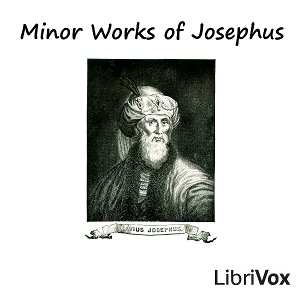
There are 3 parts to this collection.
(1) Against Apion is a two-volume defence of Judaism as classical religion and philosophy, stressing its antiquity, as opposed to what Josephus claimed was the relatively more recent tradition of the Greeks. Some anti-Judean allegations ascribed by Josephus to the Greek writer Apion, and myths accredited to Manetho are also addressed.
(2) Discourse To The Greeks Concerning Hades describes the author's views on the afterlife against the prevailing view of the "Greeks" (i.e., the Greco-Romans) of his day. Although generally still reprinted in editions of Whiston's Josephus, later scholars have realized that this attribution is incorrect. This brief discourse, at least in its original form, is now attributed to the church father Hippolytus.
(3) The Life of Josephus is an autobiographical text written by Josephus in approximately 94-99 CE – possibly as an appendix to his Antiquities of the Jews – where the author for the most part re-visits the events of the War, apparently in response to allegations made against him by Justus of Tiberias. (Summary from Wikipedia)
22 episodes
A history of France from Ancient Gaul up until 1880, written in short easy to comprehend chapters aimed at teaching English children. (Summary by Guero)
52 episodes
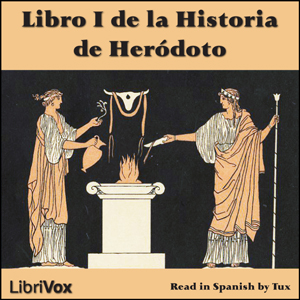
Las Historias (en griego antiguo ἱστορίαι historíai 'aproximaciones, investigaciones') de Heródoto de Halicarnaso (484–después del 430 a. C.) es una obra escrita en dialecto jonio que tiene como objetivo narrar los enfrentamientos que tuvieron lugar entre griegos y bárbaros (asiáticos, especialmente persas) y, en concreto, las Guerras Médicas. También contiene una descripción de la historia y costumbres del Antiguo Egipto. Se trata de la primera obra historiográfica griega que nos ha llegado íntegra y está dividida en nueve libros, cada uno de ellos dedicado a una musa. En el proemio Heródoto expone su intención: evitar que las hazañas de las generaciones que lo precedieron sean relegadas al olvido (I 1), explicando las causas de sus enfrentamientos. Para exponer las causas del conflicto (las Guerras Médicas), Heródoto pasa a abordar las primeras diferencias y enfrentamientos que se produjeron entre griegos y bárbaros en época mítica (secuestros de Europa, Medea y Helena, Guerra de Troya). Sin embargo, marca cierta distancia con estas tradiciones y acto seguido indica quién, por lo que él sabe, cometió en primer lugar actos injustos (Creso, rey de Lidia). Tenemos, pues, expuesta nítidamente que la agresión es la medida de la responsabilidad moral y jurídica. La atención pasa inmediatamente a la figura de Creso, el primer agresor. La historia de Lidia permite entrar en contacto con el gran eje de su Historia, Persia; al mismo tiempo, sienta las bases de su concepción teleológica del acontecer humano (entrevista entre Solón y Creso, I 28–33). El resto del libro I traslada su atención a Persia, con la entronización de Ciro y diversas campañas de este rey (sumisión de Jonia, Caria y Licia). (Resumen de Wikipedia)
18 episodes
The county of Lancashire in the north-west of England is best known as the engine room of the nineteenth-century Industrial Revolution. Steering clear of the industrial districts, F. A. Bruton takes the reader on an engaging tour of the county's beauty spots and lesser known landscapes. Taking the view that the charm of a district is nothing without its historical associations, Bruton packs his account with historical detail and literary references to, among others, Leland, Wordsworth, Ruskin, Arnold, and Mrs. Carlyle. (Introduction by Phil Benson)
16 episodes
A Merchant talks about daily life inside prisons of England, describes routines and how prisoners are treated. He notes stories of how fellow prisoners came to be in prison, and his ideas about the penal system, its downfalls and ways to improve it. The reader can see similarities to the problems we still have in regarding "criminals" today. (Introduction by Elaine Webb)
20 episodes

While Belgium is bleeding and hoping, while Poland suffers and dreams of liberation, while Serbia is waiting for redemption, there is a little country the soul of which is torn to pieces—a little country that is so remote, so remote that her ardent sighs cannot be heard.It is the country of perpetual sacrifice, the country that saw Abraham build the altar upon which he was ready to immolate his only son, the country that Moses saw from a distance, stretching in beauty and loveliness,—a land of promise never to be attained,—the country that gave the world its symbols of soul and spirit. Palestine!No war correspondents, no Red Cross or relief committees have gone to Palestine, because no actual fighting has taken place there, and yet hundreds of thousands are suffering there that worst of agonies, the agony of the spirit.Those who have devoted their lives to show the world that Palestine can be made again a country flowing with milk and honey, those who have dreamed of reviving the spirit of the prophets and the great teachers, are hanged and persecuted and exiled, their dreams shattered, their holy places profaned, their work ruined. Cut off from the world, with no bread to sustain the starving body, the heavy boot of a barbarian soldiery trampling their very soul, the dreamers of Palestine refuse to surrender, and amidst the clash of guns and swords they are battling for the spirit with the weapons of the spirit.The time has not yet come to write the record of these battles, nor even to attempt to render justice to the sublime heroes of Palestine. This book is merely the story of some of the personal experiences of one who has done less and suffered less than thousands of his comrades.(Summary from the Introduction)
11 episodes
A collection in celebration of 2012 Year of Reading Australia. Readers chose fiction, non fiction and poetry - we only asked that the readings should have some sort of Australian hook. So they can be by an Australian author, or about Australia, or just have a prominent bit of Australianess in the plot. Failing that: even being performed by Australians will do! And that the works should be PD in Australia and the U.S.A. Introduction by Annise
30 episodes
The History of the Standard Oil Company is a book written by journalist Ida Tarbell in 1904. It was an exposé of the Standard Oil Company, run at that time by oil tycoon John D. Rockefeller, the richest figure in America's history. Originally serialized in 19 parts in McClure's magazine, the book was a seminal example of muckraking, and inspired many other journalists to write about trusts, large businesses that (in the absence of strong antitrust law in the 19th century) attempted to gain monopolies in various industries. The History of the Standard Oil Company was credited with hastening the breakup of Standard Oil, which came about in 1911. ( Summary by Wikipedia )Note: This reading does not include any of the Appendices.
13 episodes







